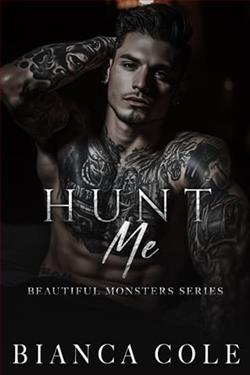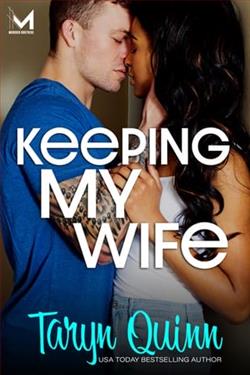Page 11 of Twisted Lies
‘So you know we’ve gotta cut you loose now?’ Kim asked, turning in her seat.
‘Oh yeah. Got it,’ Frost answered, and Kim would swear she heard a hint of relief in her voice.
‘And you know that what you saw is off—’
‘Stone, to write about it would mean remembering it, and I’m going to be trying to get that picture out of my head as soon as I can.’
The hint of colour she’d regained appeared to be ebbing away at the very thought.
‘You gonna be okay?’ Kim asked again, feeling a bit guilty for the wan expression still on the reporter’s face.
‘Yeah, I’m fine. Thanks, guys. It’s been a blast,’ she said, getting out of the car.
Kim watched her hobble to the Audi, with her oversize bag slung over her shoulder. The woman had offered no argument when Kim had explained they had no choice but to cut her loose.
She’d expected more resistance, had anticipated Frost trying to force herself into an active murder investigation, but she’d had the feeling that Frost’s mind had already been elsewhere.
Kim got out the car and headed towards the station.
Tracy Frost was no longer important.
Kim had a psychopath to find.
Seven
Frost took a few deep breaths once she was in the safety of her own space. It wasn’t the first time her body had betrayed her, and she cursed it for doing so.
She had been following her natural instinct of needing to know everything when she’d got out of the car. How many reporters got to steal a front-row seat to a fresh, juicy crime scene? The opportunity had been too good to miss. What she’d expected to see was a figure lying on the ground, mainly obscured by people. She’d been anticipating a glimpse of an item of clothing or a hair colour, maybe a fatal injury like a single stab wound. She hadn’t been expecting to see a naked man pinned to a roller cage with most of the flesh burned from his body.
As the stars had appeared before her eyes, Frost had seen DI Stone standing close to the body, studying it, analysing it, viewing it as some kind of clue. How the hell did she do that?
Yes, the sight had been horrific, but her own reaction to it had surprised her. She’d always visualised police officers attending crime scenes and viewing bodies objectively from the outset, much the way she’d view a plate of scones before deciding which one to choose. She had assumed there was no emotional reaction from them at all, just part of the job. But how did one even prepare for a sight like that? How could you be mentally ready to absorb and process such a scene?
She took out her notebook and began to jot down thoughts. She knew Stone had been surprised that she hadn’t asked more questions about the murder or the victim, but quite frankly she didn’t want to ask anything that was going to keep that picture in her mind. As juicy as it was, Fitz was going to have to pass this one along to someone else.
She couldn’t write a story about what she’d seen, but other thoughts about the morning were whizzing around her head. Police officers rarely knew exactly what they were turning up to at a crime scene. They had no clue of the horror that awaited them. How did one train for that? But what if they got too emotional? What if they were overwhelmed by the sight and couldn’t function? Though what did it say about them as individuals if they could?
When Stone had finally returned to the car, she had been distant and closed. For years Frost had thought the woman owned only one expression, but she had come to realise that the scowl had different emotional shades and variations, depending on the situation.
It was no secret that the two of them didn’t get on, despite their shared brush with death a couple of years earlier, but she did like to think there was a modicum of respect between them. Frost knew there were times when she’d done little to earn that respect in her current position at theDudley Star.
She had nothing but admiration for the real journalists who hot-footed it to war-torn countries: reporting on life and death situations; putting themselves in harm’s way against rebel groups, corrupt or secretive governments, to get the story to the people. Those same people reported on famine and genocide and the plight of refugees, starving and dying children, and she knew they were made of much sterner stuff than she was.
A couple of years ago, she’d been snapped up by an east London daily paper after a high-profile case she’d covered in the Midlands. And she had lasted little more than two months.
At first, she had loved the excitement of being in and around the big city, but it hadn’t taken long for her to see the dark side: the drugs; homelessness; poverty behind the bright lights.
The crunch had come when her boss had insisted she do a story about a mother’s neglect, which had led to a fifteen-year-old girl overdosing on heroin in Hackney. She’d used every trick in the book to get herself an interview with the woman. Instead of a neglectful mother, she’d found a woman who had taken her eye off the ball for a moment while holding down two jobs, due to a seventy per cent rent increase from her slum landlord. She had wanted to run with that story instead, but her editor had refused and insisted on the neglect angle for the piece.
At that point, they’d agreed that though she was ruthless, she wasn’t ruthless enough.
Luckily for her, the editor at theDudley Starhad not filled her position and had welcomed her back. She now knew that not only was the grass not always greener on the other side, sometimes it wasn’t real grass at all.
She took another deep breath as she started the car.
It had been a very eventful morning and she’d seen something that would stay in her memory for ever, and yet that wasn’t the uppermost thought in her head as she reversed out of the space and drove away.
Eight















